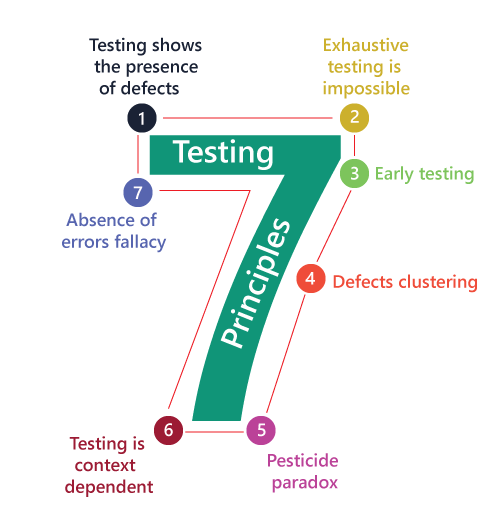
Hey all,
Today, I will let you know the principle of the testing.
My name is Ravi, and I am very happy to share with you the principles of software testing.
.What is Software Testing?
Software testing is a process to identify whether software or applications are working well or not. Because in the software testing process, you have to check the functions or ability of any software or applications and you need to check all the defects or errors of the software or applications.
In the software testing process, you have to follow all the SDLC processes to create good results and the SDLC process gives you a very good to do the proper testing of any of the software or applications. Software testing involves the execution of a software or application to assess its functionality, performance, security, usability, and other aspects.
Appling the software testing steps we would ensure more efficiency and we can upgrade and improve the quality of the software and also we can optimize the results of the Software Testing.
Principles of Software Testing.

The principle of software testing is to ensure the good and effective testing of any software or application. Here, I am writing about the principles of software testing.
- Early testing – This testing skill will give you a good opportunity to find the errors and bugs in a short time. You can detect errors and bugs early, and in the SDLC process, static testing and dynamic testing is the most used testing process for identifying error and bugs.
- Exhaustive testing is impossible – Under this testing, we could test only critical functions and valid input issues because we all know that, If we will test the entire software then he will take our time and we will invest the money that’s it. In this testing, we will make a high- effort to take the results or we will test only critical areas and high-risk functionalities.
- Defect clustering – In the defect clustering testing process we can find all types of major and minor bugs. By following this testing process we are working on only a minimum module and because of this we will find more errors and bugs, If I find 1 bug then we will have to chance to find more bugs in a few works.
- Pesticide Paradox – This testing process will let us know that If we raise the same bugs multiple times then it is a waste of our time so you will find different – different bugs during the software testing.
- testing is context-dependent – We can not use one testing skill for all the software or products there are so many software testing processes available. So we would choose the suitable testing process for the applications and software.
- Absence of error fallacy – In this testing technique, if we do not focus on the customer’s satisfaction then all software will be done because if the users are satisfied then we can release the product for the using purpose, and if the software will not meet the expectation of users then we can’t deliver this for the using purpose. And If this product is bug-free and we have fixed 99% of bugs but we aren’t able to give satisfaction to our customers then we can call this software useless and due to this reason, we have to modify it and make it for use.
- Shows presence of errors – A tester will do the testing and the tester says that all bugs have been fixed and there are no bugs in this software, and during the testing, Anyhow, during the testing, the software does not fully verify that there are no defects at all. the testing process only reduced the number of bugs and found the hidden bugs which were in the software, but it cannot prove that the software is 100% defect-free. Moreover, if no defects are found, there is no evidence of accuracy.
These principles are not absolute rules, but they provide a valuable framework for software testers. And These principles guide testing professionals in their efforts to deliver high-quality software by systematically identifying and addressing potential issues throughout the development life cycle.
Thanks,
[…] https://www.quantumuting.com/the-principle-of-software-testing/ […]